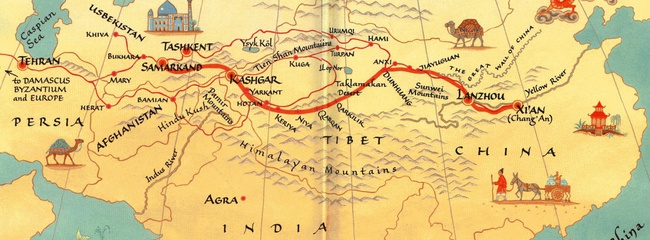Philosophy is chiefly regarded as an academic subject, but it is primarily sourced from human thought. As such, it is a subject that studies human thought and thinking, that both comprehends knowledge as well as a study on the influence of thought.
Now, contrary to popular belief, human thought is not original, that is to say when we humans ‘think’ the origin of our thought is not from ourselves, but from an external source. Just as creation cannot bring itself from ‘nothing’ into ‘something’, as it comes from a source divine, Almighty Allah, so too does the ‘thinking’ come from Allah. He it is who has created the intellect with which to think, and the seed implanted of pure thought comes from Him. This seed can be intercepted by dark forces and influences to make them impure, resulting in evil thoughts, but regardless of which, human thinking always comes from an external source. We did not invent the intellect, and therefore, we did not invent the thought. When we think, we can only base our thoughts on that which either already exists in form, or in the knowledge of the form.
Part of Philosophy is the study of what I like to call the ‘hive mind’, the collective thinking of a people, a group of people, nation, culture, civilization. When we examine Islamic Civilization in the broader sense, we see a trend of collective thinking that begins from a root of ignorance, until divine inspiration is delivered. The Revelation sent down by Allah through His beloved messenger is responsible for bringing about this change. And while the essence of philosophical thinking was evidently present, especially when it came to intellectual comprehension via contemplation and reasoning, there was no need for philosophy as a subject in the early decades of Islam for two main reasons.
- That the Holy Prophet was alive and active among his companions. As he received revelation (knowledge) he not only relayed it to the people as his entitled duty of a messenger and a Nabi, but he also explained and elaborated that knowledge, as a teacher. This stilled the need for deliberation over the knowledge received, and while philosophy was applied in the thinking and contemplation, for the sake of understanding, it was not ‘studied’ as a subject.
- Much of the knowledge delivered was yet contained within a specific culture, its people, and time. Without any significant influence, circumstantial or otherwise, all the knowledge was for the large part comprehensible. Yet, as Islamic civilization approached the close of the Khilafah age, moving into the empirical age, and the population grew not only in size but spread out across the land encompassing other cultures and their inherent philosophies, there began the period of early Islamic scholars who were expanding on their knowledge.
As this age moved into the next, and Islam spread across the lands, it became necessary to not only acknowledge the inherent philosophies of other cultures and civilizations, but to also prepare a collective thesis with which to counter and reason with doctrines that were in opposition of the Islamic way of life. And thus came the scholastics of the ‘Golden Age’, where sciences were studied primarily under the umbrella of Islamic Philosophy, as the Qur’an itself served its monumental role of explaining all things to a people who could think, ponder, reflect, and contemplate. These included men such as Al-Ghazzali, Al-Kindi, Ibn Khaldun, Ibn Sina, Ibn Al-Arabi, Ar-Razi, Al-Farabi, Al-Abhari, and numerous others, may Allah be pleased with them all.
Now, in this modern age, particularly as we crossed over the last three or so centuries, Islamic civilization has been facing a steady and rather irrecoverable decline against a western might due to the simple fact that we as Muslims are unable to counter the ideological doctrines of the west. Historians who base their scholarship only on rational facts claim that Islamic Civilization faced ‘heavy blows’ from the Mongols in the east as well as the Europeans in the west, but they ever fail in recognizing that the Mongols and the Europeans were only using bows, arrows, and swords to attack. That is to say, the onslaught was physical, not ideological. Even during these times of great siege, Islamic Scholarship saw a monumental rise chiefly because the collective philosophy was not only sound and challenging to the ‘godless-world’, but was firmly grounded in religion.
The recent decline has then been attested to an ideological attack from the west, which grounds its philosophy in materialism. The materialistic allure arrived and settled with an adamant goal to turn the populous away from their spiritual philosophies by infiltrating our academics with secularistic thought. What has resulted over the decades has been a confounded philosophy which foremost led Muslims to extremities of innovative thinking, while at the same time facing heavy opposition from the traditionalistic thinking.
Philosophy as an academic subject in the Muslim world was hence not only frowned upon but faced heavy objection via continual negative propagation, while the inherent philosophical thinking slowly diminished. What we find in our present-day is a heavy emphasis on strict theological academics, no questions asked, thus impairing the inherent human capacity to intellectually reason for the sake of understanding.
The wave upon wave of western philosophy has continued, and still continues this day, to inject our society with an endless series of subjective and quantitative philosophies in the form of ‘Isms’. Fundamentalism, Islamism, Extremism, Hegelianism, Marxism, Communism, Capitalism, the list goes on, all under the umbrella of Secularism, by virtue of which, anyone who adheres to any form of Ism becomes an ‘ist’. Fundamentalist, Islamist, Extremist, Communist, and so on and so forth, to a Secularist.
Essentially, when we examine the big picture, we find the world divided into two, which are the two groups eventually encompassing the end of days, as we will see when we get to Eschatology. These two groups at the present state are the Religionists and the Secularists, which will eventually become either Believers or Disbelievers towards the end of days.
The reason why I have elaborated everything above is to emphasize the importance of Islamic Philosophy for the Muslim, because unwarily so many will fall under either extreme of either group, regardless of their rank in Imaan. It is not judgmental upon anyone’s Imaan, but it is vital to establish Islamic thought, intellectually so, as a defense against the western ideological attack upon the Muslim world, particularly in an age where falsehood is often confounded for truth.
That being said, yes, I agree that philosophy is a dangerous subject, particularly in the wrong hands, but I also argue that it is only dangerous if incorrectly studied. Just like medicine can be poisonous if incorrectly administered. Any other academic subject can be just as dangerous when incorrectly studied. Even theological subjects such as Qur’anic Science, or Fiqh, can become dangerous if not studied with proper methodology and structure. As philosophy is the ‘Love of Wisdom’, so too must the believer affirm that the pursuit of Wisdom, of Hikmah, is not only part and parcel of religion but is obligatory upon every Muslim to not only attain, but also apply.
As a subject, Islamic philosophy is given the term Falsafa فلسفة in Arabic, and this applies to the scholar who is well aware of his study and is in control over his intellectual boundaries and limits. But to us, our view of Islamic philosophy is not Falsafa فلسفة. Our view is the view of those who seek knowledge and wisdom for the love of knowledge and wisdom, and hence the Love of our Creator who has bestowed upon us knowledge and wisdom. Ours is to pursue the essence of philosophy as a Love for Wisdom, محبة الحكمة.





